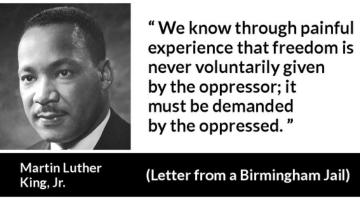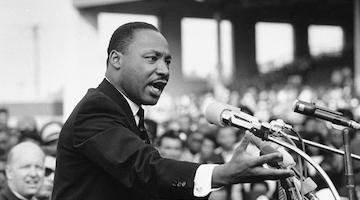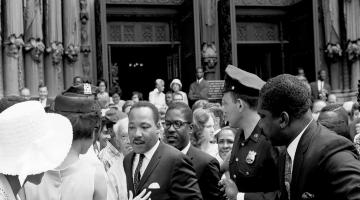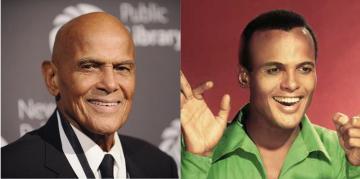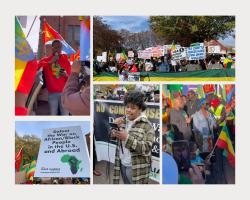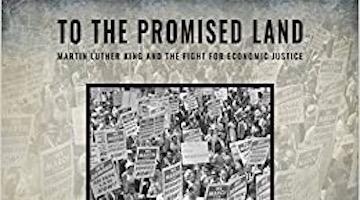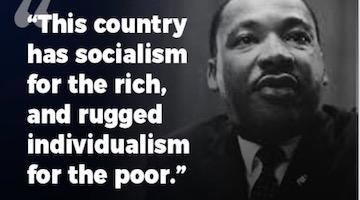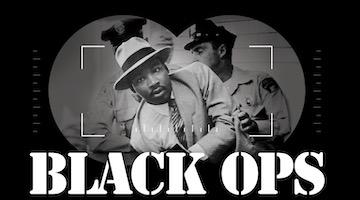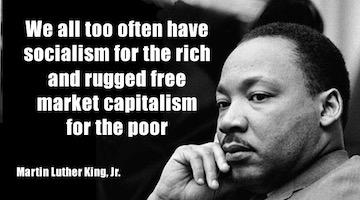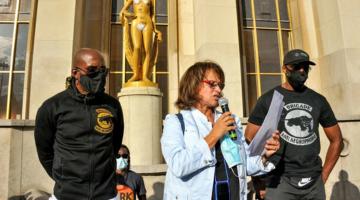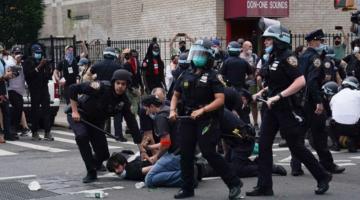Related Stories
Dr.Wilmer J. Leon, III
"When people show you who they are, believe them" remains true when we examine the sorry state of the U.S. political arena.
Editors, The Black Agenda Review
Dr.
Margaret Kimberley, BAR Executive Editor and Senior Columnist
Most Martin Luther King birthday celebrations are tawdry displays of political cynicism and cooptation.
Black Alliance For Peace
Black Alliance for Peace reminds us that Dr. Martin Luther King, Jr.
Peter Kelley
King said the best anti-poverty program is a union, where you can fight for your own agenda — somebody doesn’t have to hand it to you.
Sylvie Laurent, interviewed by Arvind Dilawar
King explicitly linked the value of human dignity to the material conditions necessary to enable people to live a decent life.
Stephen Joseph Scott
Each year in January as King is honored in the eyes of the public, there is little mention of the demands of the man and his mission: his fight for
Danny Haiphong, BAR Contributing Editor
King believed humanity could achieve a “higher synthesis” that rose above the social relations of capitalism and communism.
Matthew Miles Goodrich
MLK was dreaming of a socialist future long before the tumultuous decade of the Sixties.
More Stories
- Roger D. HarrisThe U.S. State Department's latest human rights report on Venezuela follows a familiar pattern of lying about a nation declared to be an adversary while human rights in the U.S. are violated in a…
- Frances MadesonFor Black August, Mireille Fanon Mendès-France sets the record straight on her father’s revolutionary legacy.
- Gary WilsonWashington's strategy of endless war in Ukraine is collapsing under its own weight. The Alaska summit isn't a victory for diplomacy but a stark admission of its defeat.
- State Council Information Office of the People's Republic of ChinaA new report from Beijing reveals the hypocrisy of U.S. human rights rhetoric, revealing a nation where gun violence, political corruption, and poverty are not anomalies but features of a broken…
- Mohammed El-KurdThe Israeli murder of heroic Palestinian journalist Anas Al-Sharif was bookended by accusations that he was part of Hamas. For many of our allies, the instinct is to prove his innocence by proving…

